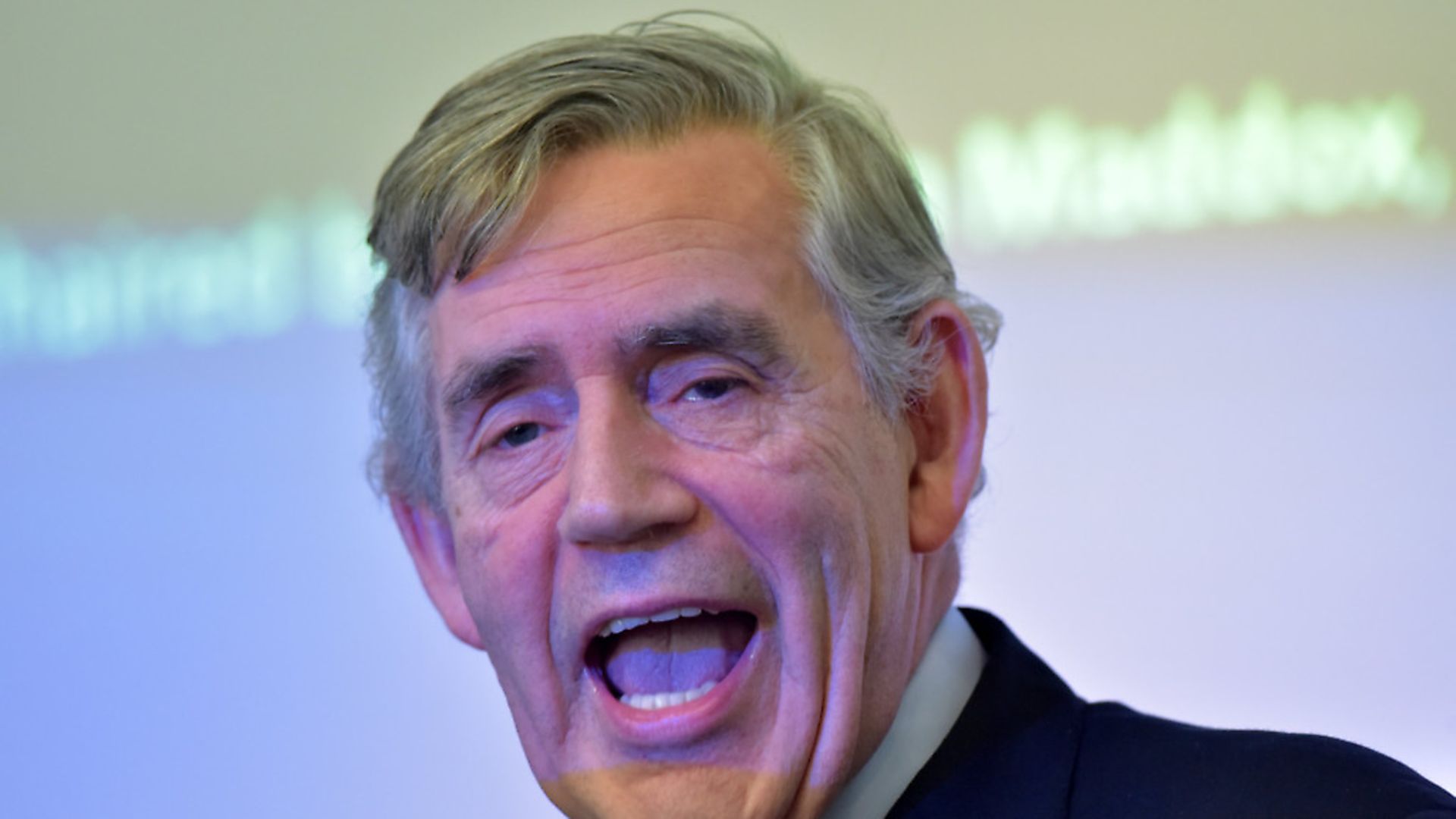
Former prime minister Gordon Brown wants the final decision on Brexit to be put back to the people.
"I think there will be a second referendum"
— BBC Politics (@BBCPolitics) November 12, 2018
Former PM Gordon Brown says people should "have the final say" on a #Brexit deal
More: https://t.co/o9MrYc2mLK pic.twitter.com/5UQuwOPbR8
Brown said long-term questions remained ‘unresolved’ and he has always been confident that a second vote would happen.
He said: ‘I for one have always said that I think there will be a second referendum. I believe that, in the end, the situation will have been seen to have changed since 2016 and that the people should, in the end, have the final say.’
READ: ‘Brexit CAN be stopped’ – Sir Keir once again rebukes Labour leadership
Speaking at the Institute for Central Government, the former Labour leader said there should be a royal commission charged with ‘hearing the voices of the British people’ which would act as a consultation on what kind of Brexit the public wanted.

Photo: PA / Nick Ansell – Credit: PA Wire/PA Images
Attacking Theresa May’s approach the talks he added: ‘Normally in a negotiation you set your long-term objectives and work out how to achieve them. But whatever the deal is and with or without a deal, the long-term questions about Britain’s future will remain unanswered and unresolved.
‘Even with a deal our end-point – Canada or Norway – is unresolved. Our long-term relationship to the customs union is unresolved, our long-term relationship to the single market is unresolved and the scope to sign trade deals is unresolved.’
He said there were ‘allegations of betrayal’ from voters on both sides of the referendum divide which the kind of Brexit deal envisaged by the government would fail to address.
And he warned: ‘We have a context now where we don’t have agreement on a long-term destination, where we have a breakdown of trust and division within the electorate, where allegations of betrayal create a poisonous and toxic atmosphere in politics and are a fertile ground for those kinds of politicians who don’t offer positive solutions but whose stock in trade – as we find right round the world – is simply to articulate anger on behalf of people without giving any positive way forward.’
Setting out his plan, Brown said: ‘Our challenge is to reunite a divided country. Our challenge is to see if there’s a way to end the deadlock.’
It would mean breaking out of the ‘Westminster bubble’ and ‘start listening to the people of this country on issues that concern them’.
Warning: Illegal string offset 'link_id' in /mnt/storage/stage/www/wp-includes/bookmark.php on line 357
Notice: Trying to get property 'link_id' of non-object in /mnt/storage/stage/www/wp-includes/bookmark.php on line 37






